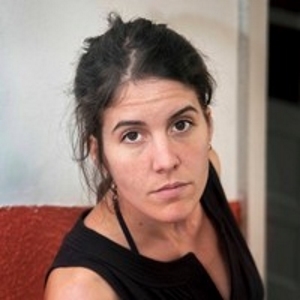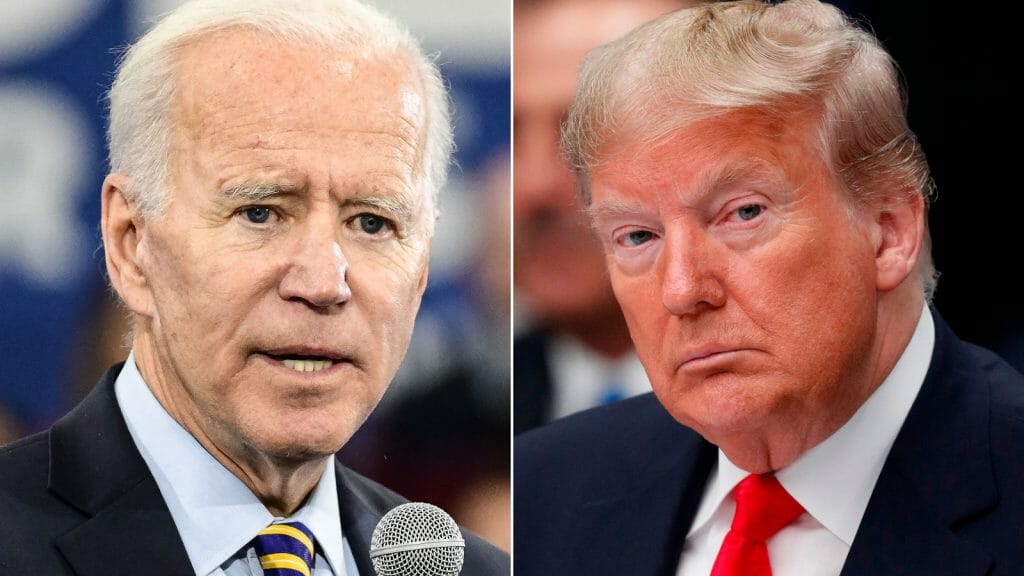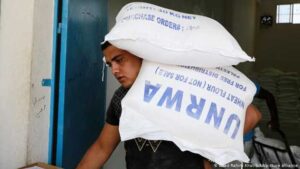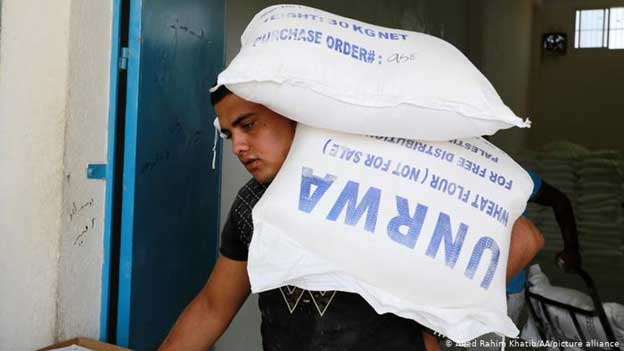
Civil Society, Featured, Gender, Gender Violence, Global, Headlines, Health, Human Rights, IPS UN: Inside the Glasshouse, Poverty & SDGs, TerraViva United Nations, Women’s Health
Maria Victoria (Mavic) Cabrera Balleza is Founder & Chief Executive Officer, Global Network of Women Peacebuilders

The United Nations is conducting a 16-day social media campaign from 25 November to 9 December for its 2020 Campaign: 16 Days of Activism Against Gender-Based Violence. The 16 Days of Activism is a worldwide campaign calling for the elimination of all forms of gender-based violence (GBV). Credit: International Action Network on Small Arms (IANSA)
– The COVID-19 pandemic is NOT the biggest pandemic the world confronts at the moment, despite over 69 million cases and 1.5 million deaths worldwide.1 If it’s not COVID, what is it then? It is violence against women!
Globally, 243 million women and girls aged 15-49 have been subjected to sexual and/or physical violence perpetrated by an intimate partner in the past 12 months alone.2 The figure increases by 30 per cent if the violence experienced by women and girls in their lifetime is added.3
These numbers are likely underestimates, since many women do not report sexual and intimate partner violence due to stigma associated with it. The UN Women policy brief on COVID-19 and VAW points out that less than 40 per cent of the women who have experienced violence seek help.
Those who do, often turn to family and friends, and less than 10 per cent report to the police. This perpetuates a culture of impunity as perpetrators go unpunished.
The data clearly shows that violence against women and girls is a global emergency, which requires urgent action. It can take many forms, from human trafficking and sexual slavery, through rape and forced sexual acts, to bettering and sexual harassment—on the street, at workplace, school and online.
Harmful cultural practices – such as female genital mutilation and child, early and forced marriage are also forms of violence against women and girls. The list goes on.
Gender-based violence can happen to anyone, anytime, and anywhere. However, some women and girls are particularly vulnerable. Some of them are young girls and older women, women who identify as lesbian, bisexual, transgender or intersex, migrant, refugee and displaced women and girls, indigenous women and girls, women and girls from ethnic and religious minorities, women and girls with disabilities, and those living in situations of conflict and humanitarian crises.
The threat of violence faced by millions of women and men around the world has been compounded by the security, health, and economic crises caused by the COVID-19 pandemic. Many are trapped at home with their abusers, while women’s shelters and domestic violence hotlines are struggling to meet demands.
As the world grapples with COVID-19, it is also past time to take concrete action to address the shadow pandemic of violence against women and girls.
United Nations response
There is no shortage in UN campaigns, programs, task forces and initiatives that all aim to end violence against women and girls
Groups such as the Group of Friends for the Elimination of Violence Against Women and Girls and the Action Coalition for Gender-based violence bring together civil society, Member States, UN agencies, international organizations, and philanthropies provide space for sharing lessons learned, coordinating action and mobilizing resources to end violence against women and girls.
The Spotlight Initiative, a global, multi-year partnership between the European Union and the United Nations launched in 2019 has committed a record €500 million to end violence against women and girls.
Advocacy and communications campaigns such as the UNiTE by 2030 campaign managed by UN Women, call on governments, civil society, women’s organizations, young people, the private sector, the media, and the entire UN system to join forces in addressing the global pandemic of violence against women and girls.
There is also the Office of the Special Representative of the Secretary-General on Sexual Violence in Conflict, Special Rapporteur on Violence Against Women and the Committee on the Elimination of Discrimination against Women (CEDAW Committee), all of which have specific but related mandates that address violence against women and girls.
How effective is the UN response to violence against women and girls? The effectiveness of the UN response was put to a major test by the outbreak of COVID-19. The massive increase in the incidence of violence against women and girls is an indication that the response is ineffective—or at best—insufficient.
While one could argue that the weakness of individual Member States both in managing the pandemic and addressing violence against women and girls cannot be attributed to the UN, the shortcomings brought to light by the pandemic beg the question: how can the UN improve Member States’ compliance with and implementation of the Convention on the Elimination of All Forms of Discrimination against Women, the International Labour Organisation’s Violence and Harassment Convention, and the UN Security Council Resolution 1325 on Women, Peace and Security and its supporting resolutions?
All of these are powerful international laws that call on the UN and Member States to take concrete actions on this issue. However, the pandemic has demonstrated that actions taken to date have barely scratched the surface of the complex and pervasive issue of violence against women and girls. An effective and sustainable response requires structural changes, and a re-evaluation of global priorities!
The UN Secretary-General’s call
The current global priorities are most clearly visible if we follow the money. USD $1.9 trillion! This is how much the world spent to run military institutions in 2019, the largest annual increase in military expenditure since 2010.4 Let that sink in!!!
Meanwhile, women’s shelters are underfunded, many women—including victims of sexual violence—do not have access to quality healthcare, including maternal and reproductive health, and many women’s rights organizations are struggling to stay afloat during the COVID-19 pandemic.
To end violence against women, Member States and donors need to put their money where their mouths are. It is not only the right and necessary choice—it is also a smart investment.
According to the World Bank, violence against women is estimated to cost countries up to 3.7% of their Gross Domestic Product (GDP)—more than double what most governments spend on education.5
UN Women estimates that cost to be approximately $1.5 trillion6 – almost at the level of the record-high military expenditures. Preventing violence against women and girls first and foremost saves lives—but it can also save money.
In his 2020 report on Women and Peace and Security, the Secretary-General drew attention to the stark difference between soaring rates of military spending and the strains in social protection systems including the unavailability of necessary health care that disproportionately impact women and girls. It also underlined how bilateral aid to women’s organizations in fragile or conflict-affected countries has stagnated at 0.2 per cent of total bilateral aid ($96 million on average per year).
The Secretary-General’s report marks the 20th anniversary of Resolution 1325, arguably the most important international law that address violence against women and girls in conflict situations. It presents five goals for the next decade.
It called on the international community to “Reverse the upward trajectory in global military spending with a view to encouraging greater investment in the social infrastructure and services that buttress human security.”
Moreover, the Secretary-General urged Member States to ratify the Arms Trade Treaty, control the availability of armaments; to promote the participation of women in all arms control and disarmament processes and forums; and to reduce excessive military expenditures.
The current context calls for renewed efforts to curb military spending, which has been a chief strategic objective of the women’s movement for peace, he further stressed.
Complementing his call for reduced military spending, the other goal presented by the Secretary-General is to galvanize the donor community for universal compliance with a minimum of 15 per cent of ODA to conflict-affected countries dedicated to advancing gender equality, and the remaining 85 per cent to integrate gender considerations, including multiplying by five the direct assistance to women’s organizations.
The reduction of military spending does not only represent the possibility of financial resources that could support women and girls who are victims of gender-based violence as well as predictable core funds to women’s rights organizations.
It is also an opportunity to generate stronger political commitment to disarmament and arms control and eliminate the threats posed by the estimated one billion small arms that are circulating globally. It can also lead to preventing the use of arms to commit or facilitate serious acts of violence against women and girls.
We, in the women, peace and security community as well as all actors working on gender equality, human rights, and the elimination of violence against women and girls must waste no time.
Let us all come together and seize the moment to present our evidence-based analysis, and policy recommendations in order to influence policy outcomes and decisions that divert weapons spending to fund civil society’s initiatives to end violence against women and girls, and COVID-19 response and recovery.
1 Worldometer, “COVID-19 Coronavirus Pandemic”, Updated 9 December 2020. Accessed from https://www.worldometers.info/coronavirus/#countries
2 UN Women, “COVID-19 and Ending Violence Against Women and Girls”, 2020. Available at: https://www.unwomen.org/-/media/headquarters/attachments/sections/library/publications/2020/issue-brief-covid-19-and-ending-violence-against-women-and-girls-en.pdf?la=en&vs=5006
3 World Health Organization, “Global and Regional Estimates of Violence Against Women: Prevalence and Health Effects of Intimate Partner Violence and Non-Partner Sexual Violence”, 2013. Available at: https://apps.who.int/iris/handle/10665/85239
4 Stockholm International Peace Research Institute, “Global military expenditure sees largest annual increase in a decade—says SIPRI—reaching $1917 billion in 2019”, 27 April 2020. Available at: https://www.sipri.org/media/press-release/2020/global-military-expenditure-sees-largest-annual-increase-decade-says-sipri-reaching-1917-billion
5 World Bank, “Gender-Based Violence (Violence Against Women and Girls)”, 25 September 2019. Available at: https://www.worldbank.org/en/topic/socialsustainability/brief/violence-against-women-and-girls
6 UN-Women, “COVID-19 and ending violence against women and girls”, 2020. Available at: https://www.unwomen.org/-/media/headquarters/attachments/sections/library/publications/2020/issue-brief-covid-19-and-ending-violence-against-women-and-girls-en.pdf?la=en&vs=5006.












